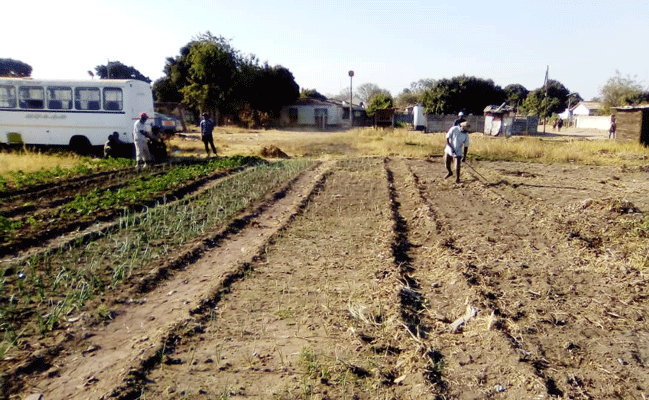
BY FIDELITY MHLANGA
COLLABORATIVE Resilience Trust (CRT) has embarked on helping vulnerable communities by offering them support to revive their livehoods.
Zimbabwe is experiencing one of its worst economic quagmires aggravated by runaway inflation and currency depreciation with about seven million food-insecure citizens according the United Nations. The Covid-19 pandemic has threatened livelihoods as urban poverty increases. As such, CRT has put in place mechanisms to alleviate poverty among children, youths and women.
“We have partnered with some urban youths who have been rendered jobless [some of them were informal passenger touts for commuter omnibuses] due to Covid-19.
We are supporting them in reviving their livelihoods and to get food on a two-hectare garden in Highfield,” said CRT project coordinator Chido Hodza.
“Some poor children can’t get enough food and girls are transacting their bodies for food. We are working with a group of women in Epworth to establish poultry projects under the banner ‘Backyard Butcheries’ whose funds can help feed children and girls.”
Furthermore, the organisation has partnered a kitchen soup in Epworth run by two selfless women feeding 1 000 poor, hungry kids to find lasting solutions to their vulnerability.
In addition, the Trust has been engaging in outreach programmes, working mainly with volunteers training communities on various development initiatives, including health and hygiene awareness, gender and educational issue CRT seeks to roll out several projects aimed at strengthening resilience and self-sufficiency for livelihoods.
- Chamisa under fire over US$120K donation
- Mavhunga puts DeMbare into Chibuku quarterfinals
- Pension funds bet on Cabora Bassa oilfields
- Councils defy govt fire tender directive
Keep Reading
CRT vice-chairperson Tinashe Zimudzi added that going forward, the strategy is on organisational development and research, health, water and sanitation, food security, markets and livelihoods, and education and social services.
“We are targeting communities populated by low-income earners who struggle to meet their basic needs. In addition, such areas will be experiencing inadequate water and sanitation services, above-average food and transport prices, joblessness, and high incidences of gender-based violence and school dropouts particularly among girls,” Zimudzi said.
The choice of these areas is based on the fact that these communities have an inherent entrepreneurial flair and with proper support, they can flourish and reverse some of the sustained humanitarian needs as well as contribute to the betterment of their families and communities.
CRT is a fully registered, non-profit making, non-political charity organisation created to strengthen economic opportunities and resilience of the most vulnerable communities in Zimbabwe. It tackles fundamental social and economic development issues with the aim of developing solutions that make a lasting difference in the communities and that help people to organise and improve their own lives. Its vision is to see a world in which communities and societies become more prosperous, fairer, better governed, safer, healthier and environmentally more sustainable.










